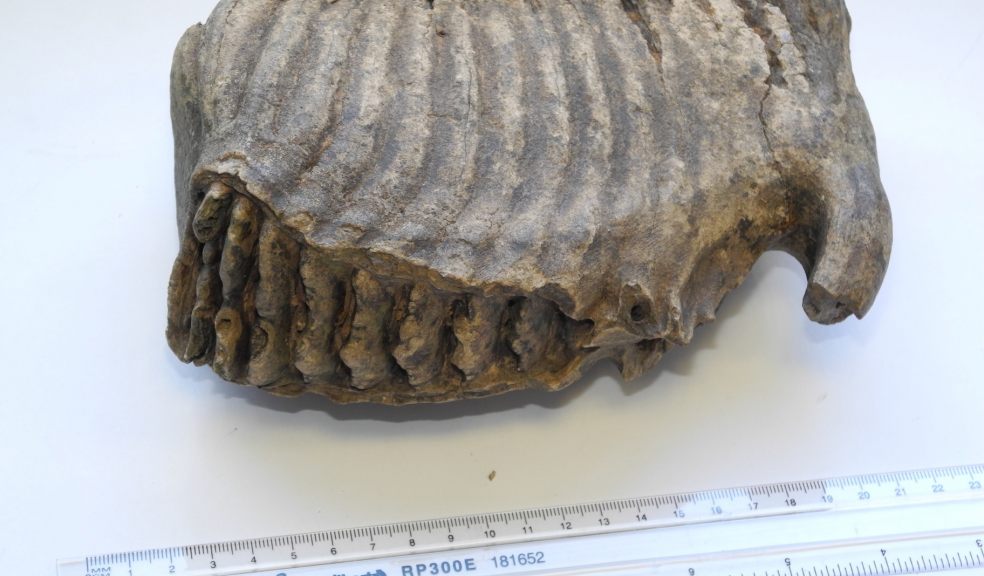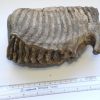
Mammoth tooth discovered in East Devon river
It’s not often you stumble across a 20,000-year-old mammoth tooth while carrying out a routine task at work, but that’s exactly what happened to Environment Agency officer Simon McHugh.
Simon was checking riverbank erosion near Newton Poppleford in East Devon when he noticed the massive molar sitting on the bed of the River Otter. Experts at London’s Natural History Museum have confirmed the unusual find as a mammoth tooth dating from the last Ice Age.
The owner of the land where it was found has agreed to donate the tooth to the Royal Albert Memorial Museum in Exeter. But before it can go on display, the molar must undergo special preservation. If it dries out, there is a danger it could fall apart..
The section of riverbank where Simon made his once-in-a-lifetime discovery was heavily eroded during last year’s floods. It is believed the tooth was washed into the river as previously buried areas of gravelbed were exposed.
‘I was out with some Environment Agency colleagues assessing bank erosion near Newton Poppleford when I saw what looked like a big tooth lying in about a foot of water on the riverbed gravels. It was only after I retrieved it and examined the tooth more closely that I realised I’d found something special,’ said Simon, a Biodiversity Technical Officer.
‘The tooth has very good definition which would have been lost if it had been transported far down the river,’ explained Simon who thinks it has ‘petrified’ and absorbed silica and/or other minerals after lying buried in the ground for thousands of years. This has made it heavier than when it was ‘in use.’
Weighing a hefty 2.2kg and measuring 20cm in length, 7cm wide and 13cm deep, the tooth is a right upper molar from a mammoth that was approximately 20 years old when it died. Mammoths were relatively long lived with an average life expectancy of 60 – 80 years.
Experts have confirmed it is a rare find. The Royal Albert Memorial Museum in Exeter have 11 other mammoth teeth in their collection, but only two are from Devon sites. The others are from North America and other parts of Europe. This latest discovery is the first in Devon since the 1800’s and is thought to be between 20,000 – 70,000 years old.
Mammoths finally died out around 3,000 years ago. Their extinction is thought to have been caused by climate change and hunting.
The River Otter mammoth tooth will probably go on display at Exeter Museum as part of a special exhibition.

















